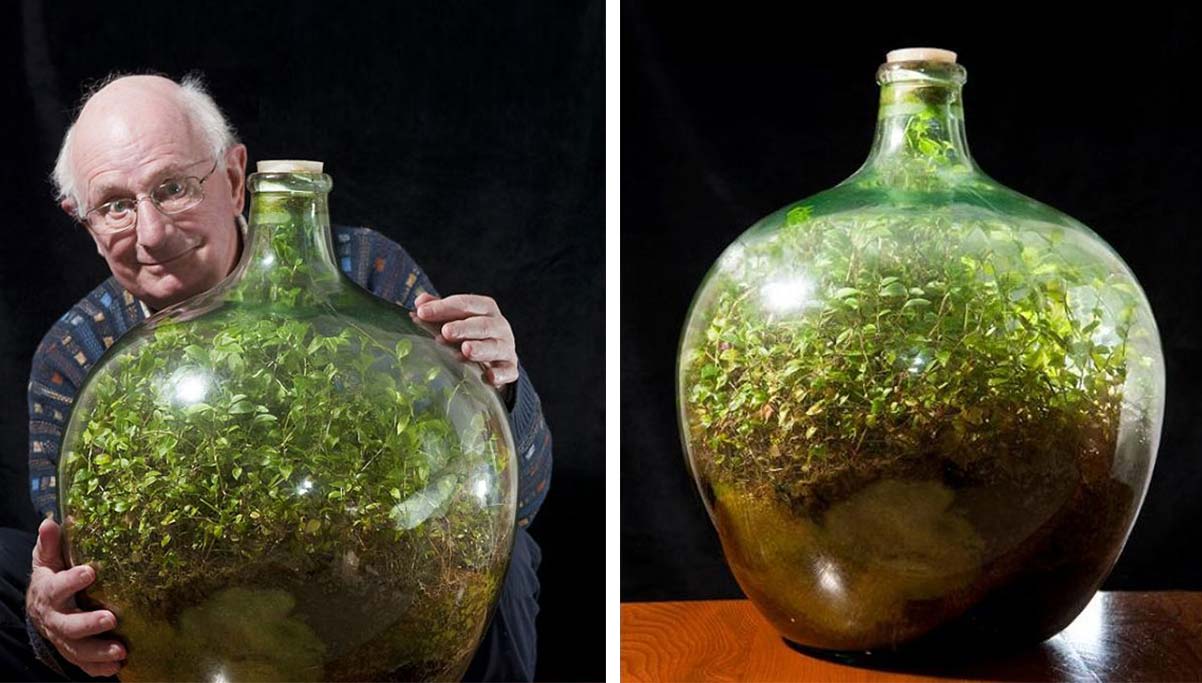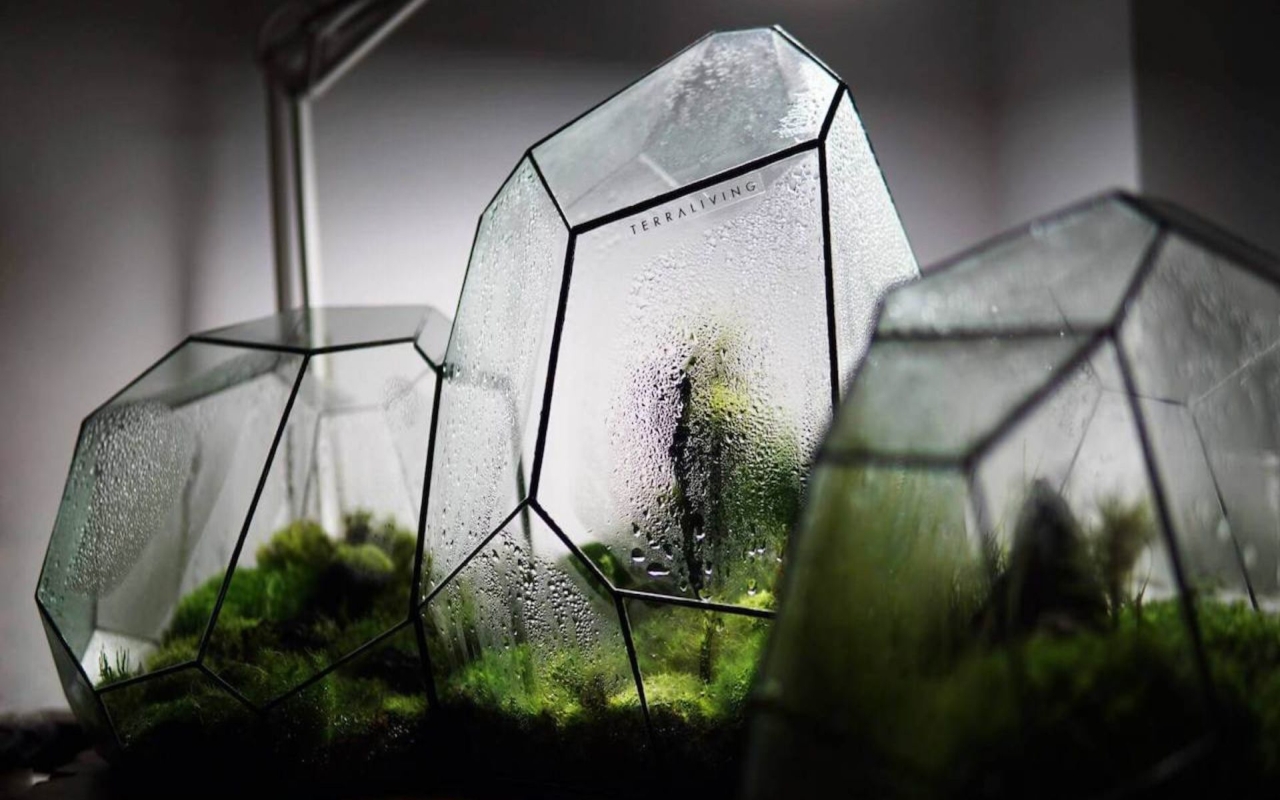What is a Terrarium?

On Easter Sunday 1960, David Latimer, an electrical engineer from Surrey, England, washed a 38-liter glass carboy that had once contained sulfuric acid.
He filled it with compost, placed a single spiderwort seedling in the bottom with a little water and corked it, he told the Daily Mail. Latimer then placed it at the bottom of a stairwell in his home to ensure it received plenty of sunlight and turned it frequently to ensure the leaves grew evenly.
Latimer's indoor terrarium experiment has evolved for over 60 years with almost no intervention. It is a completely self-sustaining ecosystem. The carboy has only been opened once - in 1972, when it popped its cork to release some water. In this way, the terrarium serves as an ultra-simplified model of how life on our planet sustains itself - self-sufficient as long as it gets all the sunlight it needs. 
A closed terrarium like Latimer's works because it mimics the three basic cycles we see on Earth: the water cycle, the oxygen cycle and the nutrient cycle. For starters, the terrarium has its own water cycle: since water cannot escape, the same water molecules keep circulating inside the bottle, are absorbed by the plant's roots and then transferred out through its leaves, condense on the sides of the container and flow down the sides and back into the soil.
The plant is kept alive, as plants do in all ecosystems around the world. Aerobic bacteria in the compost eat dead plant matter, creating a more nutritious soil for the plant to use. The bacteria also use the oxygen released from the plants and convert it into carbon dioxide, which the plants need for photosynthesis. Latimer hadn't planned to put together what would become the world's oldest terrarium. In fact, he didn't tell anyone about it until he was photographed on a BBC gardening program and asked if his experiment would be of interest to professionals. Latimer plans to either pass the terrarium on to his children or leave it to the Royal Horticultural Society.
Thanks for reading.


















































